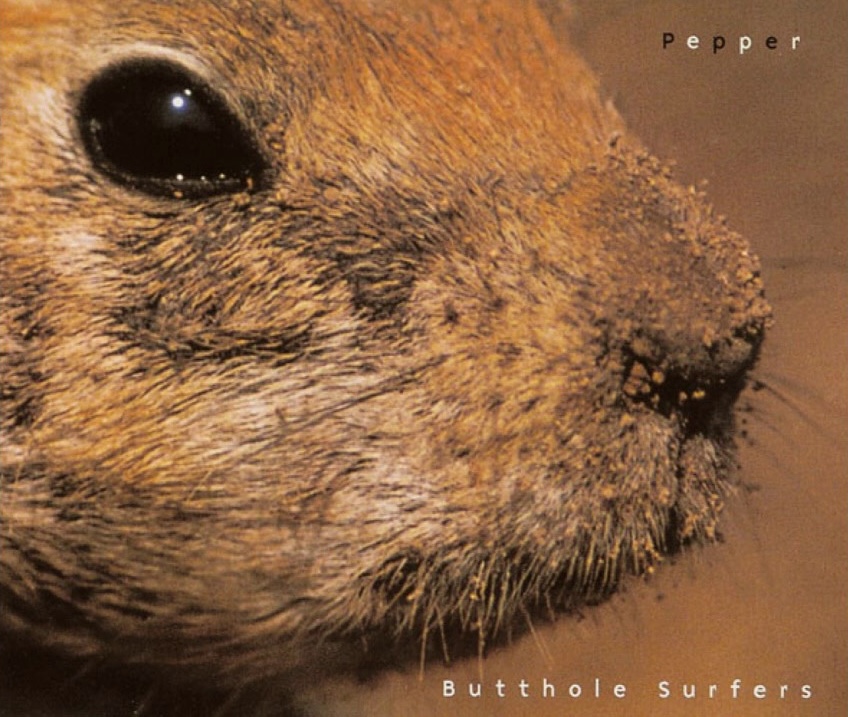When I think about Lil Peep, it's hard not to think about Kurt Cobain. Objectively, there are many similarities. Both were strikingly handsome young musical prodigies. Both were devastated by their parents' divorces. Both funneled their trauma and talent into revolutionary, contagiously influential new musical forms. Both coped with depression by abusing hard drugs. Both styled themselves as outsiders despite a personal and artistic magnetism that pulled the masses in their direction. Both rapidly became generational icons, a reverence that became more like deification when each one died young in tragic fashion.
Peep, born Gustav Åhr, drew the parallel himself even before he died from a fentanyl overdose in November 2017 at the incomprehensibly young age of 21. Three months earlier, upon the release of his debut album Come Over When You're Sober, Pt. 1, the face-tatted, formerly homeless rising star told the Times of London, "I'd love to be the new Kurt Cobain." His 2016 breakthrough mixtape Hellboy included a song called "Cobain." He leaned into the comparison, sometimes in reckless and destructive ways. He rapped and sang about wanting to kill himself, and through drug abuse, he achieved it.
I also have subjective, personal reasons for aligning Peep with Cobain. I didn't properly appreciate either artist while they were still alive. In Cobain's case I was too young and sheltered; although I lived through Nirvana's rise, I never heard of Cobain until kids started showing up at my elementary school wearing T-shirts commemorating his death. In Peep's case I was too old and jaded. I laughed him off as a trashy annoyance and scoffed when Pitchfork called him "the future of emo." And when he was gone in a flash, I was one of many detractors who had to reevaluate my relationship to his music, ultimately concluding that my biases had blinded me from approaching Peep's music on its merits.
One more: Four years ago I got a window into Cobain's life by watching Brett Morgen's Montage Of Heck documentary at SXSW. Montage Of Heck was a radically intimate portrait built from Cobain's own archives, and some viewed its depiction of his decrepit junkie home life with Courtney Love as invasive and exploitative. I found it flawed but ultimately captivating and compulsively watchable. Which is about how I feel about the Lil Peep documentary I screened at SXSW this week.
Everybody's Everything was directed by Ramez Silyan, a music video director who did Peep's "Girls" video, and Sebastian Jones, a filmmaker who worked as an associate producer on Terrence Malick's Austin music scene drama Song To Song. Malick, the legendary auteur whose attachment to Everybody's Everything raised eyebrows and expectations, produced the project along with Peep's mother, Liza Womack, and his agent, Sarah Stennett. Both women are interviewed extensively in the film, as are Peep's manager, two of his girlfriends, and a wide cast of friends and collaborators. It ends with an extended sitdown with his grandfather and surrogate father figure, retired Harvard history professor Jack Womack. His voice is heard throughout the film narrating his letters to young Gus, a device used as connective tissue.
Missing is Peep's dad, Karl Åhr, with whom he maintained no relationship after his parents divorced in his 10th-grade year. Echoing their comments from other interviews, in the movie Peep and his mom allude to some kind of damage inflicted by his father, but we're never given any specifics, and we don't see him except occasionally in the abundant footage of Peep's childhood. At one point Peep's mom describes his father as a guy who coached his kids' sports teams but wasn't much involved beyond that. At another, his manager, Chase Ortega, describes a conversation where Peep seemed reluctant to discuss his father. I don't know whether the filmmakers sought to interview Karl Åhr or if he'd have even been willing to speak, but the lack of his perspective or details about his negative relationship with Peep is one of the most glaring blemishes on the movie. He's framed as this boogeyman responsible for so much of the suffering that haunted and eventually destroyed his son, but we don't learn whether his alleged mistreatment went beyond neglect into more overt forms of abuse.
What the movie conveys beautifully is Peep's personality: his charisma, his depression, his playfulness, his intense desire to be inclusive, sometimes to his detriment. We see prophetic footage of a young Gus saying, "I wanna do the microphone." As a toddler, when instructed not to touch something, he responds, "I touched!" Near the end we see a childhood photo of him dressed up as Peter Pan. Once his career takes off, we see sold-out rooms of kids screaming his lyrics at concerts across America and legions more mobbing him in Russia like he's Justin Bieber. We see the media and fashion industries also flocking to him, making him the star of runway shows and magazine spreads. We see artists gravitate to him, too. JGrxxn's Schemaposse, a large collective also including Ghostmane, basically disbanded because Peep left. His various homes along Skid Row became crash pads for a swirling community of rappers, producers, and hangers-on.
View this post on InstagramA post shared by @ lilpeep on
Everybody's Everything is named for a post Peep published the night before his death on Instagram, the platform that, along with SoundCloud, largely fueled his rise. The caption began, "I just wana [sic] be everybody's everything," and the film takes pains to illustrate how true that was. By showing rather than telling, Everybody's Everything demonstrates the way Peep's glassy-eyed emo-trap hybrid united a wide range of people. More directly, as the drug abuse that had lingered in the background comes to the forefront, the movie articulates the way his inability to say no to anyone contributing to his undoing.
At the urging of Ortega and Stennett, he planned to leave his Goth Boi Clique entourage behind, for reasons related to both his career and his health. This resulted in a summer 2017 escape to London, where he embarked on prolific and sometimes cuddly recording sessions with iLoveMakonnen, who describes himself and Peep as "two brokenhearted teddy bears healing each other." (These sessions were around the same time Peep came out as bisexual, which the movie surprisingly doesn't mention.) The plan was also to launch a solo tour without the usual 24/7 party atmosphere, but to smooth things over with the other GBC artists, he invited them to come along, a choice the film strongly implies led to his fatal overdose.
This is where Everybody's Everything breaks its own spell. Upon Peep's death, the directors allot time for some brief conspiracy theorizing. Girlfriend Layla Shapiro and former collaborator JGrxxn both wonder why no one thought to check on Peep for four hours while he laid there unconscious in Tucson. Rapper Mackned, who was there that night and has been hounded by fans alleging he had something to do with Peep’s death, turns hostile as he imagines how people will misinterpret his interview to fit their theories. It's an unpleasant stretch that realistically evokes the chaos and confusion that follow a loved one’s death.
More disorienting is the closing interview with Peep’s grandfather. It makes some kind of sense to give him the last word, given that he's functioned as more or less the voice of God throughout the movie, and his grief registers as powerful. Yet his lengthy monologue relating his grandson’s life to St. Augustine and the Gospel of John comes out of nowhere, and his recollection of the day Peep died is too meandering to work as the movie's emotional climax. All that plus a long, Malick-like tracking shot of the ocean had me feeling like I had wandered into a different movie, a sensation only marginally corrected by a closing scene of Peep happily walking the streets of Long Island to his mother's house.
These scenes remind me about Morgen's effective decision to end Montage Of Heck with Cobain's death, leaving out the mess that followed and letting it be a portrait of the artist as a troubled young man. I'm glad he didn't give airtime to the aftermath of Cobain's death and especially the conspiracy theories surrounding it. But ultimately, Everybody's Everything is not Montage Of Heck, just as Peep is not Cobain. He didn't live long enough to infiltrate the mainstream to the same extent, though he certainly seemed to be on his way. Despite its faults -- and despite his -- the movie successfully conveys why that was.






